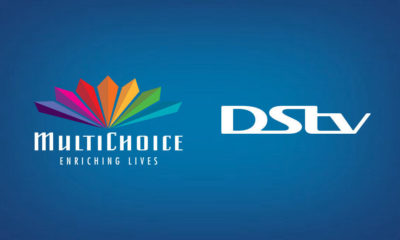Brand Value: Premier League Worth €8.5bn, More than La Liga and Bundesliga Combined
The revenues of the big five European football leagues have soared in the last twenty years, reaching €17bn in the season 2018/2019. However, English Premier League convincingly tops the list of professional football competitions in Europe, both in terms of profit and brand value.
According to data presented by Safe Betting, Premier League hit €8.5bn in brand value in 2020, 19% more than La Liga and Bundesliga combined.
€1.5 bn Higher Revenue than Other Top Football Leagues
Besides leading in brand value, the Premier League also generates the highest revenue of all the European football leagues and has the highest operating profit. Although the coronavirus outbreak caused a massive financial hit to England’s top division teams, Premier League clubs are still expected to generate at least €1.5 bn more than their counterparts in Germany and Spain, revealed the Deloitte Annual Review of Football Finance 2020.
The reason for that is broadcasting rights. Statistics indicate the Premier League clubs are set to reach €2.4 bn in revenue from broadcasting rights this season. Commercial revenues are forecast to hit €1.7bn value in 2020, a €139 million increase year-on-year. Matchday profits follow with €614 million in revenue this season.
Manchester United tops the list of the professional football clubs in England, with over €1.3bn in brand value in 2020, revealed the Brand Finance Football 50 – 2020 survey. Statistics show the club generated €627 million in revenue last year, while its wage costs amounted to €352 million. The 2019 Global Sports Salaries Survey also revealed that Manchester United’s first-team players earned an average of €6.8 million last season, ranking as the second leading football club in Premier League and seventh globally.
Liverpool FC hit over €1.2bn brand value this year, the second-largest among all Premier League clubs. Deloitte’s Annual Review of Football Finance 2020 showed the club generated €533 million in revenue in season 2019/2020, while its first-team members earned an average of €6.1 million last year. Liverpool also represents the second most-expensive football team globally, with €1.02bn in the combined market value of its 30 players.
Manchester City ranked as the third most valuable football brand in England, with over €1.1bn in brand value in 2020. However, statistics show the club, which generated €538 million in revenue last season, tops the list of the highest-priced football teams in 2020, with €1.04bn in the combined market value of its 31 players. In the 2019/2020 season, Manchester City had an average annual first-team member salary of €7.7 million, the highest among all Premier League clubs.
La Liga Has the Most Valuable Football Club Brands
Although La Liga ranked as the second leading European football league with almost €4bn in brand value in 2020, statistics show the two top Spanish clubs represent the most valuable football brands globally.
Real Madrid and FC Barcelona both hit over €1.4bn in brand value this year, accounting for 70% of the total brand value of the highest-leveled Spanish football league.
Statistics show the first-team players of Real Madrid, the world’s largest football brand, earned an average of €9.45 million this season. At the same time, their combined market value hit €930.3 million, ranking them as the fifth most-expensive football team in the world.
FC Barcelona, the second most valuable football brand in the world, tops the list of European football clubs with a €10.4 million average annual player salary in the season 2019/2020. The club’s players also represent the third most expensive football team globally, with €1bn in their combined market value. Moreover, the Spanish football giant hit a record revenue of €813.3 million in the season 2018/2019 and ranked as the biggest cash-generating football club for the first time.
With €3.2bn in brand value or 2.6 times less than Premier League, Bundesliga ranked as the third most valuable European football league. The leading German football club and the sixth globally, FC Bayern München, accounts for one-third of that figure, with over €1bn in brand value this year.
Italy’s Serie A and French Ligue 1 follow, with 1.8bn and 1.2bn in brand value, respectively.

 Naira3 weeks ago
Naira3 weeks ago
 News4 weeks ago
News4 weeks ago
 Naira4 weeks ago
Naira4 weeks ago
 Naira3 weeks ago
Naira3 weeks ago
 Travel3 weeks ago
Travel3 weeks ago
 Jobs3 weeks ago
Jobs3 weeks ago
 Naira3 weeks ago
Naira3 weeks ago
 Investment4 weeks ago
Investment4 weeks ago






























